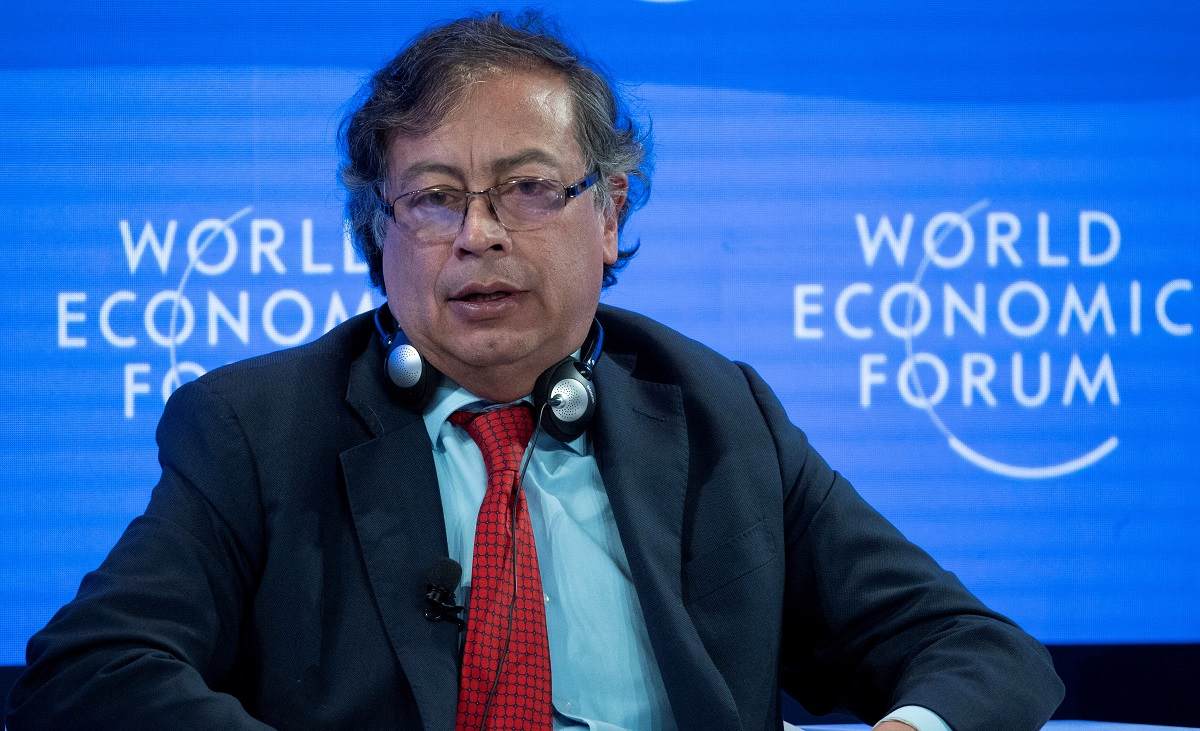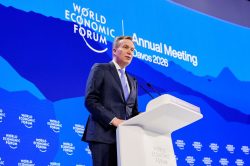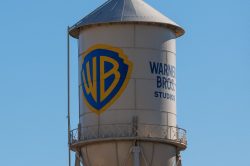
Colombia’s President Gustavo Petro attends the session “Leadership for Latin America” during the World Economic Forum (WEF) 2023 in Davos, Switzerland, January 18, 2023.
10:54 JST, March 4, 2023
BOGOTA, Colombia (AP) — Colombian President Gustavo Petro has asked prosecutors to investigate accusations against his brother and one of his sons that could deal a blow to his presidency and undermine his plans for peace and to fight corruption.
Petro, a former guerrilla who was elected as Colombia’s first leftist president last year, has promised to battle endemic corruption and bring “total peace” to the South American country which only recently, in 2016, signed a peace pact largely ending decades of internal war.
The prosecutor’s office said it had started looking into the accusation against Nicolás Petro, the president’s son, made by his former partner that he kept irregular donations to his father’s presidential campaign.
Meanwhile, the president’s brother is accused of involvement in a ring that allegedly received benefits for promising to help drug traffickers enroll in the government’s “total peace” program.
“I have a responsibility to be loyal to the votes that many of you cast for me,” the president said the day before he asked for both cases to be investigated.
The cases strike at the core pillars of Petro’s election campaign and will have an impact on the president’s public image and could call into question the legitimacy of the government’s peace process, said political analyst Carlos Arias Orejuela, a professor at the Externado University of Colombia.
“This, given that Petro based his narrative on him bringing ‘change’, not only of government, but in the forms of practicing politics and its background with anti-corruption and the mishandling of political nepotism,” he said.
Nicolás Petro’s ex-partner, Day Vásquez, has said that he received improper money from donations to his father’s campaign.
In an interview with Semana magazine, Vásquez said the president’s son received more than 600 million Colombian pesos (about $125,000) from Samuel Santander Lopesierra, who is known as the “Marlboro Man” and was imprisoned in the United States for drug trafficking.
The donation “never legally reached the campaign because he kept the money as well as others,” Vásquez said without providing proof. She added that the president had no knowledge of the money.
“Everything has been behind the father’s back,” she said.
According to Vásquez, Nicólas Petro, who is a lawmaker in Atlantico province, also received up to 400 million pesos (around $83,000) from Alfonso del Cristo Hilsaca, a businessman from northern Colombia.
The president’s son denied the accusations, claiming to not know either Lopesierra or Hilsaca.
“I have not met or received any type of political, personal or economic favor from any questionable character,” he said in a statement.
President Petro has six children.
There have also been complaints made against the president’s brother, Juan Fernando Petro, in connection with a network of lawyers and organizations that allegedly took money to link drug traffickers and people wanted for extradition with the government’s “total peace” program.
Colombia’s 2016 peace pact was with the Revolutionary Armed Forces of Colombia, but smaller groups remained. President Petro has proposed negotiations with such groups for their members to turn themselves in to the justice system in exchange for benefits.
He has proposed to Washington changing the extradition agreement with his country so that drug traffickers who turn themselves to Colombian authorities and don’t return to trafficking can avoid extradition.
The president’s brother has denied any involvement in the network and indicated that he has already responded to the call from the prosecutors investigating the case. He said malicious third parties are using his name to deceive drug traffickers.
Petro and his government have reiterated that the only official who has their endorsement to have contacts with illegal groups is the High Commissioner for Peace.
“Whoever wants to interfere in that purpose (of achieving peace), or take personal advantage of it, has no place in the government, even if they are members of my family,” said President Petro. “I trust that my brother and my son can prove their innocence, but I will respect the conclusions reached by the courts.”
Sandra Borda, a political analyst and professor at the Universidad de Los Andes, said the accusations are a political blow to the president reminiscent of the scandal that shook the Ernesto Samper administration (1994-1998). He was eventually found not guilty of receiving money from drug traffickers in his campaign.
“We have the precedent of drug money entering a campaign in the past, but in that case it was not people so close, like the president’s own family,” said Borda.
Analysts agree the accusations against Petro’s relatives could impact October’s local elections.
Top Articles in News Services
-

Survey Shows False Election Info Perceived as True
-

Hong Kong Ex-Publisher Jimmy Lai’s Sentence Raises International Outcry as China Defends It
-

Japan’s Nikkei Stock Average Touches 58,000 as Yen, Jgbs Rally on Election Fallout (UPDATE 1)
-

Japan’s Nikkei Stock Average Falls as US-Iran Tensions Unsettle Investors (UPDATE 1)
-

Japan’s Nikkei Stock Average Rises on Tech Rally and Takaichi’s Spending Hopes (UPDATE 1)
JN ACCESS RANKING
-

Producer Behind Pop Group XG Arrested for Cocaine Possession
-

Japan PM Takaichi’s Cabinet Resigns en Masse
-

Man Infected with Measles Reportedly Dined at Restaurant in Tokyo Station
-

Israeli Ambassador to Japan Speaks about Japan’s Role in the Reconstruction of Gaza
-

Videos Plagiarized, Reposted with False Subtitles Claiming ‘Ryukyu Belongs to China’; Anti-China False Information Also Posted in Japan



























